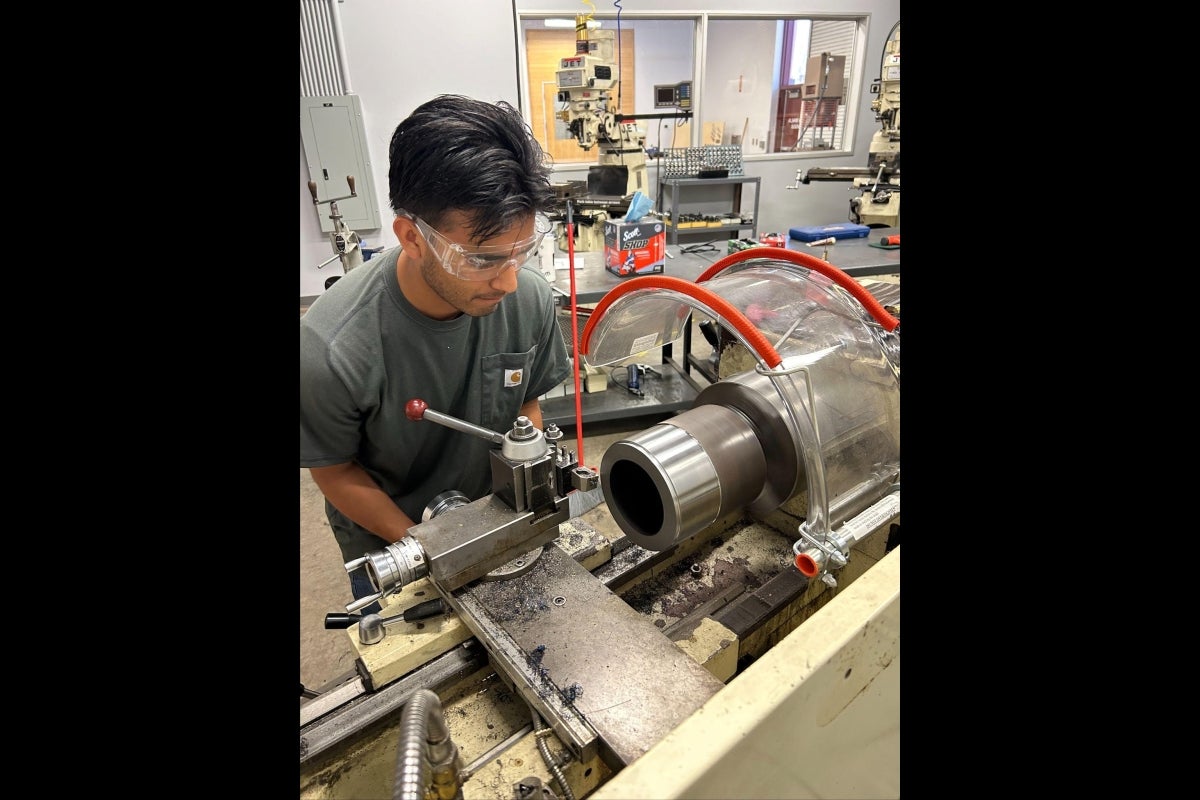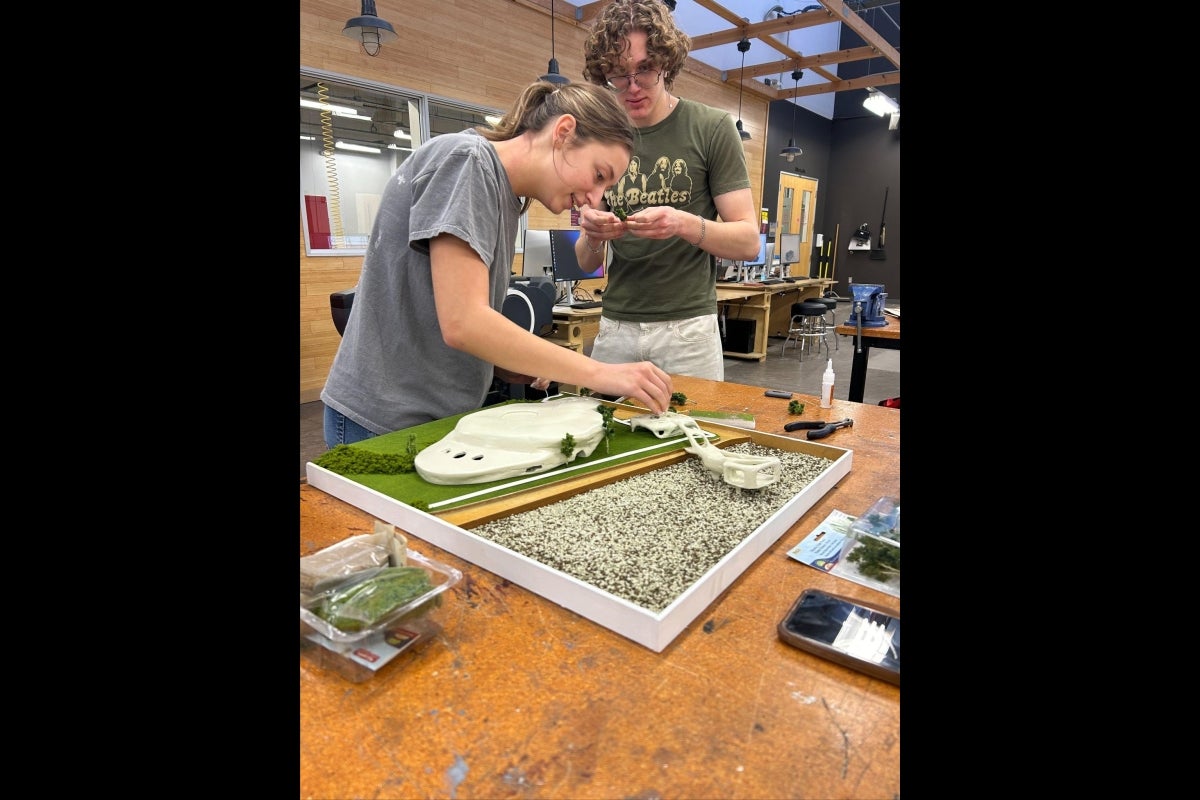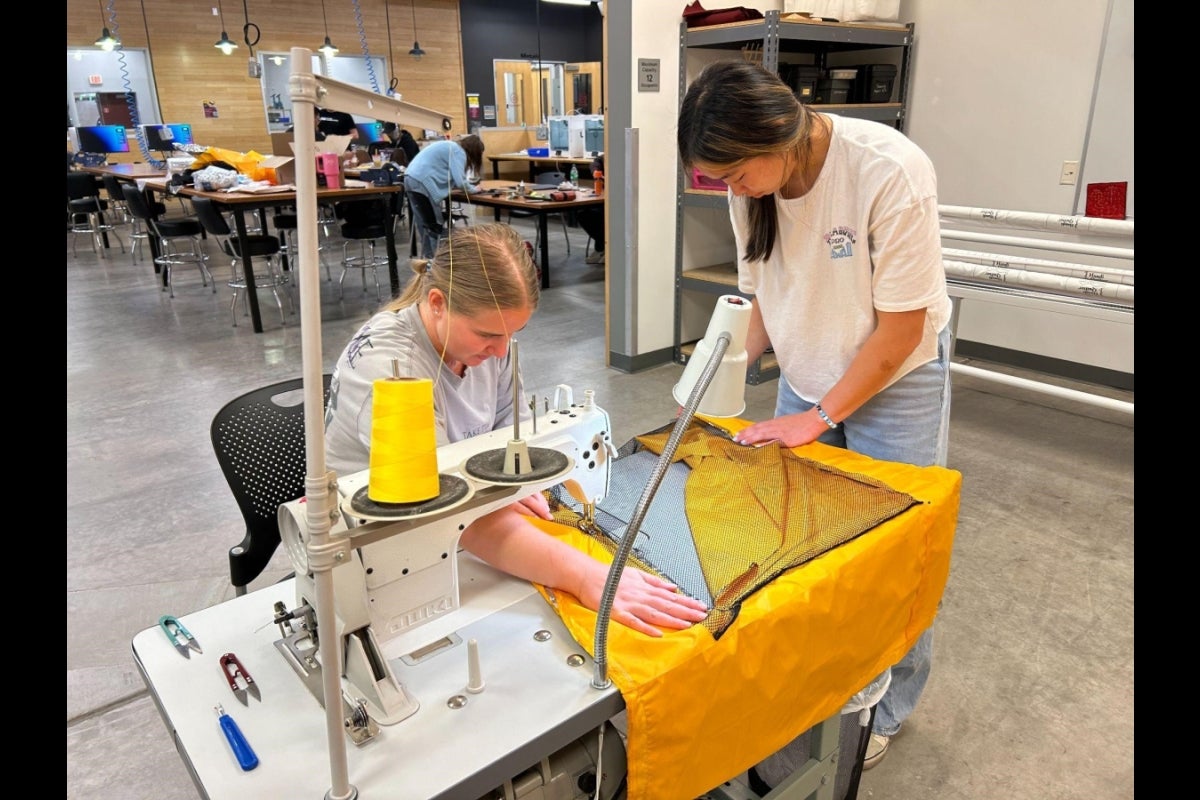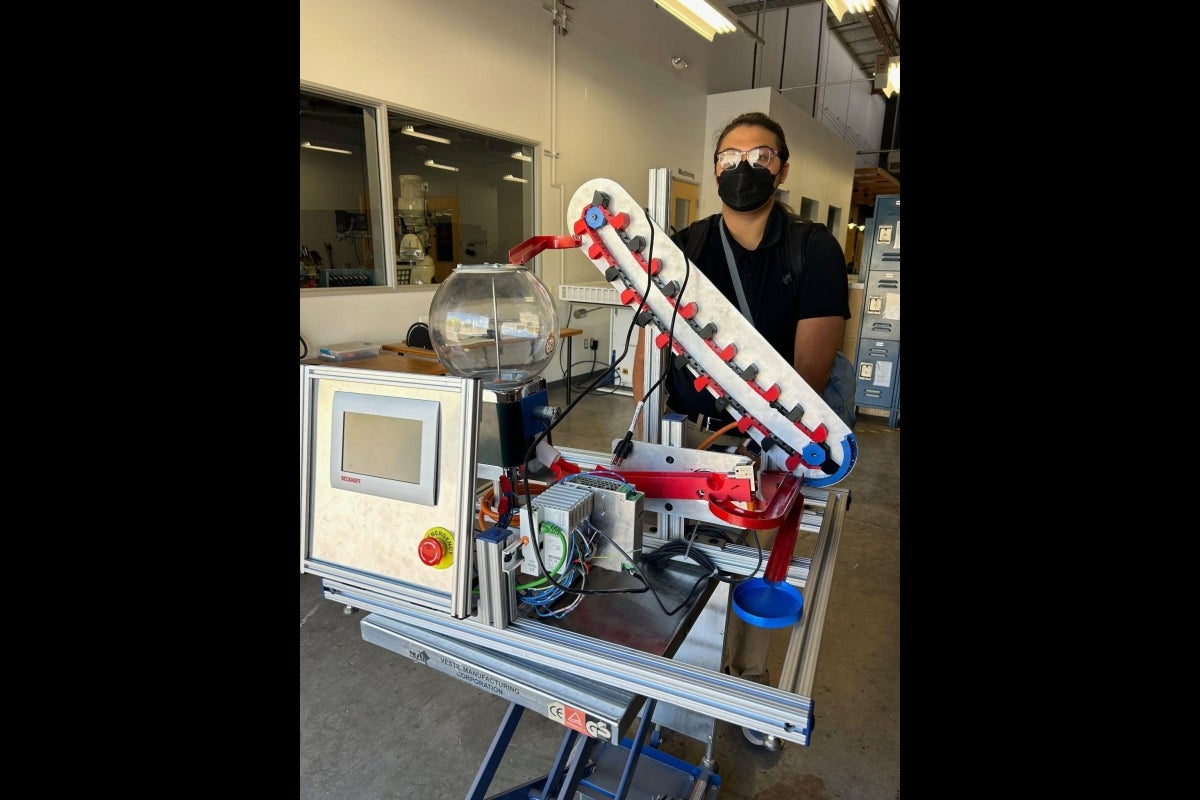ASU Chandler Innovation Center supports students, local entrepreneurs

Chandler residents visit the ASU Chandler Innovation Center to see an augmented reality vision of a blueprint for the city of Chandler, led by Bruce Meighen, the CEO of the community design firm Logan Simpson. Photo by Charlie Leight/ASU News
Editor’s note: This story is featured in the 2024 year in review.
Justin Hillsten knows about trying something over and over until it works.
The Arizona State University alum and entrepreneur has worked through many iterations of his ventures, thanks to his access to the ASU Chandler Innovation Center. Hillsten has used the fabrication center at the facility and has also been part of the Chandler Endeavor Venture Innovation Incubator, based in the building.
“I prototyped DrainFunnel at that space using the 3D printer. I actually taught myself CAD software,” said Hillsten, a 2015 ASU grad whose venture sells products that prevent hair clogs in bathtub drains. He sells direct to consumers on his site and on Amazon and Walmart.com.
Chandler Endeavor Venture Challenge
Watch as the top finalists pitch their groundbreaking ventures for a chance to win up to $5,000 in funding. The challenge runs from 5 to 7 p.m. Wednesday, Dec. 18, at the ASU Chandler Innovation Center, 249 E. Chicago St., Chandler.
Register here.
In May, Hillsten, while wearing a furry costume, won $4,000 in the Chandler Endeavor Venture Challenge pitching event, which he spent on developing packaging for his next iteration, SinkFunnel, to launch in the next few months.
Hillsten’s venture is just one of hundreds that have been supported by the ASU Chandler Innovation Center, a 34,000-square-foot building that houses entrepreneurship programs, classes, workshops and coworking spaces along with the fabrication center.
The Chandler Endeavor Venture Innovation Incubator is a partnership between ASU’s J. Orin Edson Entrepreneurship + Innovation Institute and the city of Chandler, and a unique model.
Typically, incubators require entrepreneurs to apply, and they may or may not be selected to join a cohort of other startups. The Chandler Endeavor model invites any entrepreneur in the community to join simply by registering. Then, they can collaborate with peers and get expert advice, all for free.
The partnership is important, according to Angel Encinas, a member of the Chandler City Council.
“With us being the city of innovation, Chandler had this idea of how we can create this space for not only our residents, but entrepreneurs across the Valley to be able to come into our space and launch their ideas,” he said.
“And with ASU’s participation and involvement, we’re bringing in people from across the Valley, and hopefully, once they're launching their businesses or their ideas, they’ll be able to scale up and have those businesses here in Chandler.”
Prepping founders for success
The Chandler Endeavor Venture Innovation Incubator launched in 2023 and far exceeded its goal of reaching 1,000 people in its first year. Going forward, the goal was to fine-tune the support, according to Kristin Slice, director of community entrepreneurship for the J. Orin Edson Entrepreneurship + Innovation Institute.
“How do we really create an incubation model that aligns with the ASU Charter? It has to be inclusive and at the same time deeply impactful, and it has to serve a diversity of audiences at different stages,” she said.
The center is open to anyone in the Valley, not just those in Chandler, and everything is free.
“We keep it grounded in Chandler. Whenever we have in-depth resources like our venture challenge, which is our seed grant funding, or dedicated spaces, we ask them, ‘How are you giving back to the Chandler community?’
“And we are engaging with a lot of people multiple times, and our most engaged founders also tend to have the highest economic impact, meaning that they're hitting growth goals, they're hiring, creating increased sales, new partnerships, finding outside investors and capital and grant funds, as well as weaving into the ASU ecosystem.”
This year, the center is focusing more specifically on the entrepreneurs’ needs, particularly with preparing to be funded.
“We have many founders that are working full time or have families or are students that have a real diversity of needs,” she said.
“So one of the things that we found last year that was really helpful was an overall understanding of what it means to be truly funding-ready. What is the expectation? When are investors actually interested?”
This year, the Chandler Endeavor Venture Innovation Incubator built its own venture development framework based on a global framework that was created and tested by thousands of investors across the world. Part of it was teaching the common language of the venture world.
“We focused on, how do you really get past traction? How do you prove that? How do you really think of a model at scale?
“So understanding what those words mean and then how to apply it to their venture, and then how to clearly articulate it to others in a quick way has been a lot of our focus this year,” she said.
Beyond 3D printing
The fabrication center has been around in various iterations since 2013, when it was an ASU partnership known as the Tech Shop, before the relaunch as the ASU Chandler Innovation Center in 2023. Hillsten prototyped his DrainFunnel several years ago, and now uses the fab center to prototype a product for another venture he’s growing.
“I’ve been using the (computer numerical control) mill to make aluminum molds and do injection molding,” he said.
“3D printing will only get you so far if you have a project that has a specific functionality and you have to narrow down the material. You have to do production-level samples, and injection molding allows you to test out engineering-level plastics.”
Hillsten is among several entrepreneurs who use the fabrication center, but 90% of the users are ASU students, according to Brett Kennedy, assistant director of operations at the ASU Chandler Innovation Center.
“We have laser cutters, 3D printers, sewing and vinyl cutting. And that's usually where makerspaces stop. But we have a wood shop, a machine shop, metal shop and welding, and some bigger, fancier, computer-controlled tools,” he said.
“We buy equipment that's easy to use, approachable for students and for us, easy to maintain and just so that the equipment always works and they feel comfortable using it.”
Of the students who use the fabrication center, 48% are in the Ira A. Fulton Schools of Engineering, 28% are in the Herberger Institute for Design and the Arts, and the rest are from the other colleges.
Students, who can get reimbursed for Uber rides from the ASU campuses to the Chandler space, can work on anything related to their ASU experience, such as class coursework or creations for student clubs or organizations. The shop runs free workshops every day on how to use all the equipment.
Besides students and entrepreneurs, the fab center is also used for projects by the Circular Living Lab, as well as a site for classes in the Osher Lifelong Learning Institute, which provides noncredit enrichment classes to people age 50 and over.
Hillsten, who lives in Glendale, is grateful for access to the fab center for his ventures.
“I’ve tested probably 15 different materials and five different molds there that would have cost ten- to twenty-thousand dollars, so it’s been super helpful,” he said.
More Business and entrepreneurship

When self-leadership turns self-destructive
Self-leadership is a relatively new practice of understanding who you are and developing strategies to motivate yourself to achieve a desired goal. When applied correctly, it can help a leader…

New ASU business graduate degrees meet emerging market needs
Following the successful launch of the nation's first graduate program in artificial intelligence in business, the W. P. Carey School of Business at Arizona State University is adding to and…

3 ways to start sounding like an executive
Story by May BuschEditor's note: This story was featured in the winter 2025 issue of ASU Thrive.Whether you love meetings or hate them, they are golden opportunities to demonstrate your executive…



